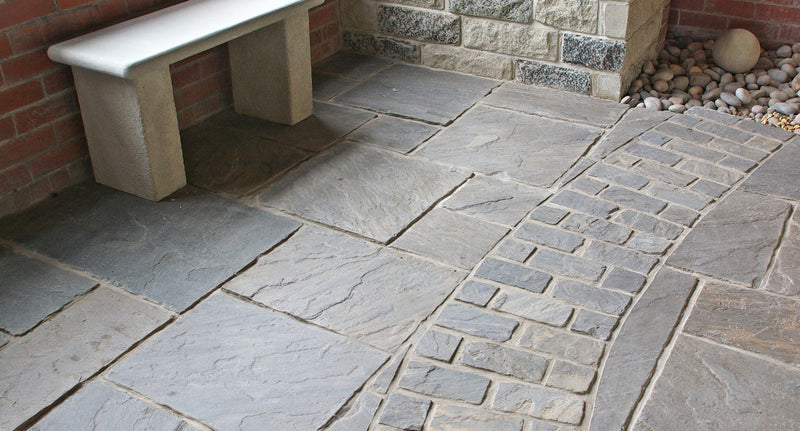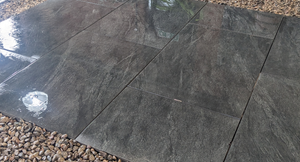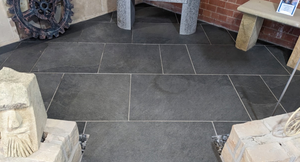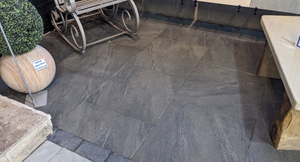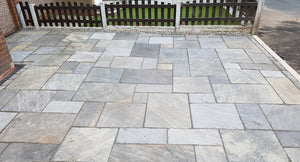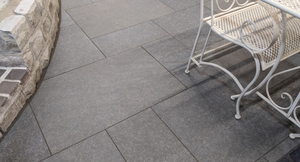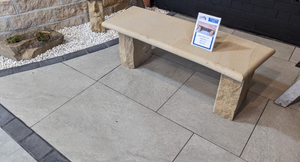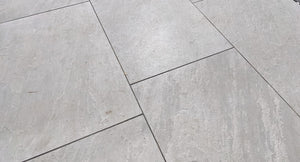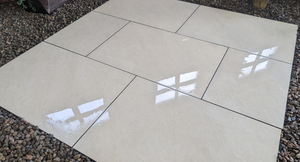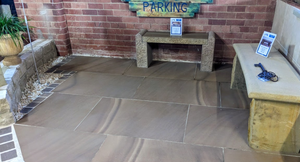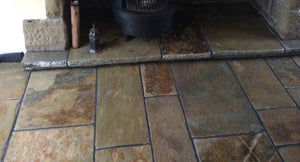
Old Courtyard
£50 M² Inc VAT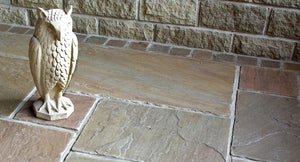
Old Manor
£38.40 M² Inc VAT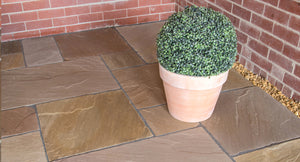
Raj Tumbled
£25.80 M² Inc VAT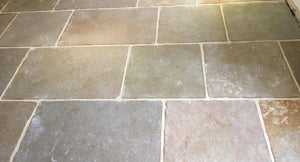
Regency Mottled Buff Limestone
£50.4 M² Inc VAT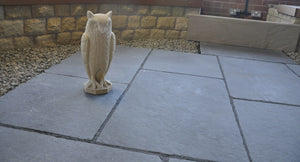
Regency Period Grey
£50.4 M² Inc VAT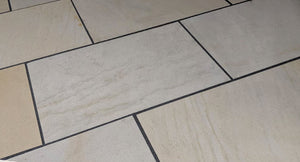
Yellow Mint (Whitby) Sawn Indian Sandstone - 900 x 600
£48.00 M² Inc VATPremium Paving
Our premium stone paving choices include a mix of limestone and sandstone with a variety of finishes including brushed and tumbled. These unique stone paving options are more expensive than our standard paving due to the manufacturing process they undergo but the stunning results you can achieve are truly breathtaking.
Why choose premium paving slabs?
Our premium paving slabs have been created using several different highly advanced processes, allowing you to take your pick between a variety of unique, tactile finishes; all imbued with an unrivalled sense of character and style. Our premium paving collection encompasses a range of colours and shades, so whatever sort of setting or environment you’ve got in mind, whether it’s indoor or outdoor, traditional or modern, you can be sure we’ll have something to suit you. (Several tiles have even been specially designed to be the perfect fit for a certain kind of space!)
What are tumbled paving slabs?
Tumbled paving slabs are favoured for their softer, smoother appearance, which generally looks more worn than other types of paving stone. Any sort of paving stone can achieve this distinctive effect by being put through a tumbling machine. This is a specialised machine that basically functions like a large, slow cement mixer. The slabs themselves are placed into a rubber drum, along with a mixture consisting of sand, rocks and water. When the machine is active, the drum slowly rotates so that the assembled aggregate wears against the edges of the slabs. Ultimately, what’s left is a softer and more natural-looking stone, with a noticeably chalkier appearance. It’s the quintessential choice for more modern or contemporary spaces.
What are brushed paving slabs?
Brushed paving slabs start out as raw paving stones (often limestone), before being honed - essentially, polished to produce a flat matte surface, one that’s less porous than the original material. The honed slabs are then polished with a steel comb, enhancing their natural colour and to create a smooth, textured surface with a rounded-off edge.
Brushed paving stones are a favourite of buyers who want tiles with a more textured and rustic feel compared to those that have been honed, but remain slightly smoother than tumbled slabs - retaining more of their original colour, too.
What are porcelain paving slabs?
The manufacturing process for porcelain slabs is notably different from other types of paving slabs, mainly because they’re not technically natural stone. Instead, they’re created by firing clay at very high temperatures in specialised moulds, creating identical slabs in pre-defined shapes. These shapes are then left to dry, and wrapped in a veneer to give them a tangible texture and pattern. Porcelain tiles are renowned across the UK as the ultimate low-maintenance solution - they’re highly scratch-resistant, and their porosity is close to zero.
If you’re considering choosing them for your own space, the main thing to remember is that the nature of their manufacturing process does mean that they can be harder to install than natural stone slabs. They need an extra layer of primer to properly bed them to the mortar, and specialist tools are normally required to cut them. That can make them a challenging and risky DIY project, so it’s generally a good idea to enlist the help of a professional for the installation.


